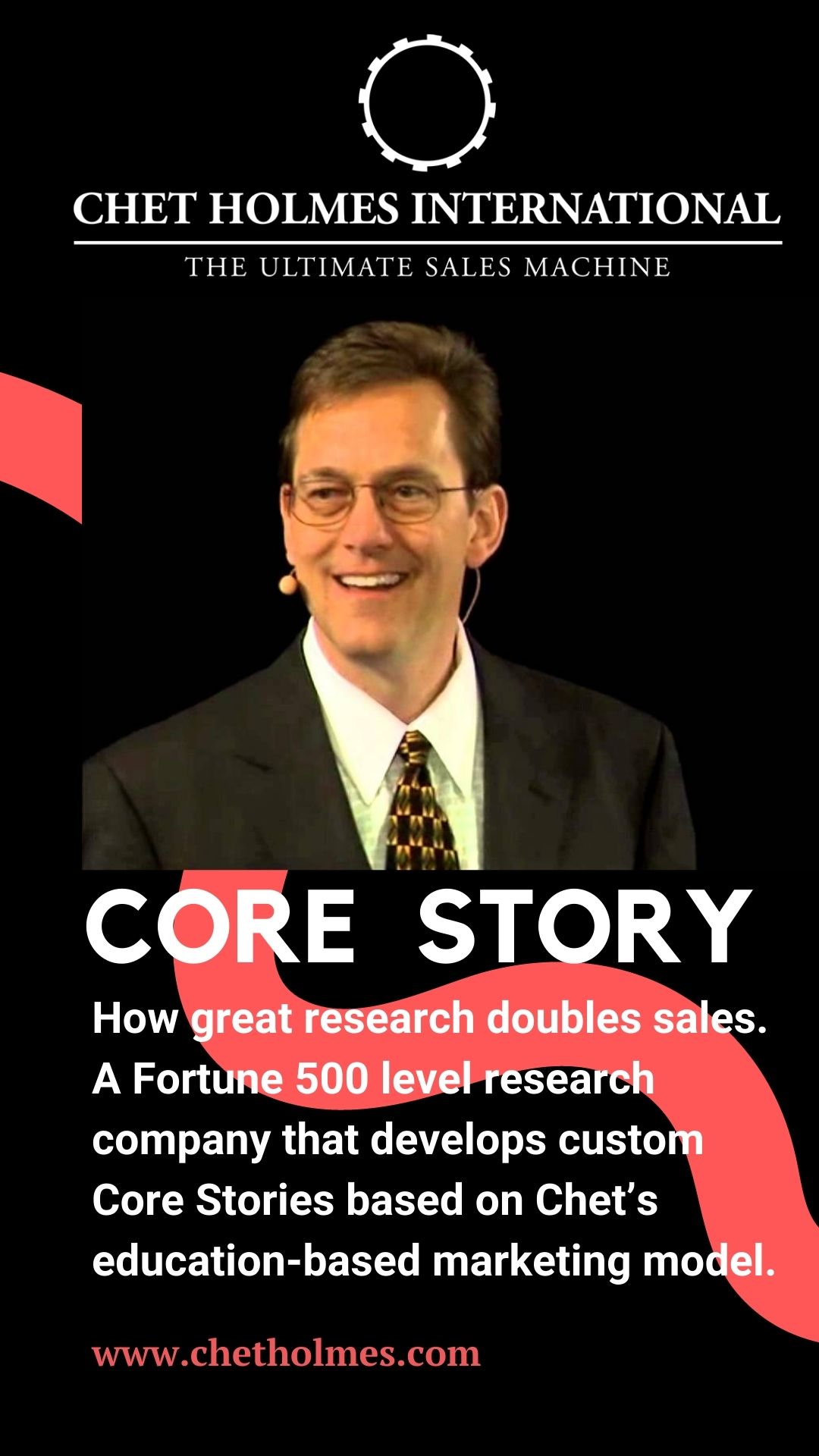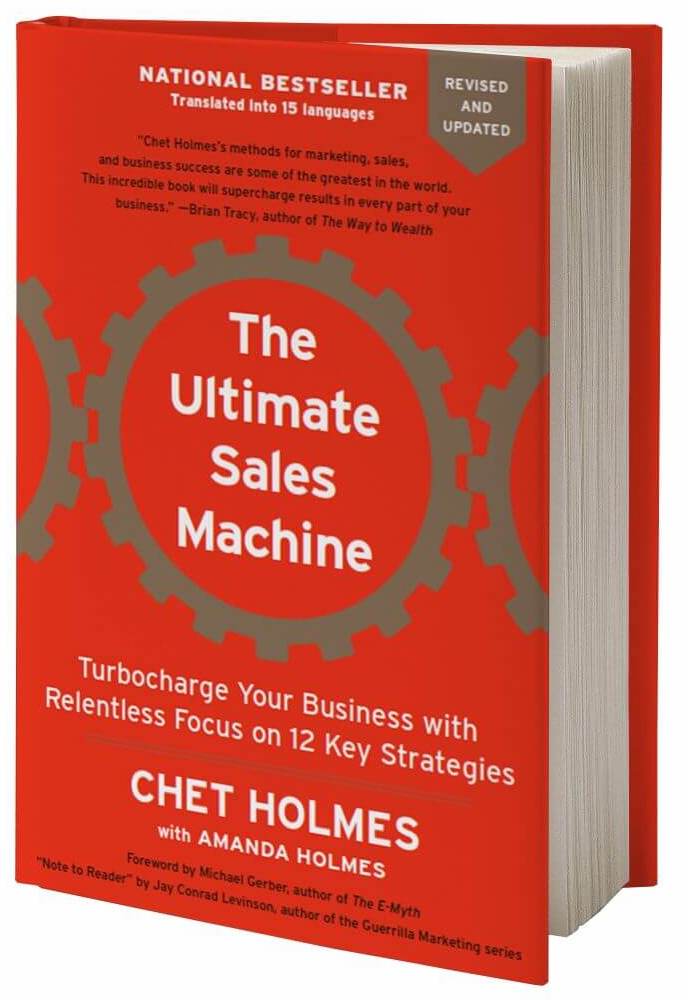Did you know that the U.S has experienced 12 recessions since World War 2?
That’s one every six years, according to the National Bureau of Economic Research.
Recessions are more common than most people realize, and most entrepreneurs are likely to encounter multiple over the course of their career.
These changing global events, turbulent markets, and trying economic times make running a successful business a challenge – but there is a long history of steps that have worked in the past to weather the storm.
In today’s episode featuring Jerry Macnamara, we talk about:
-The common mistake CEOs make when revenues decrease
-Several concrete steps entrepreneurs and business owners can take to prepare for a potential recession
-How to create the right environment for your people to make engaged, autonomous, and agile decisions to thrive during challenging economic times.
Jerry has led five companies in five industries, B2B and B2C. His companies have made the Franchise 500, Inc 500 and Best Places to Work, and he is recognized as an Ultimate CEO. His mission is to positively impact 5M people through better business.
You’ll love this episode if you are looking for expert insights and practical tips you can take to ensure your business rises to the challenge and comes through this period stronger than ever.
Enjoy!
- Want to know what’s keeping you from doubling your sales in the next 12 months? Take our quick QUIZ to get answers: Howtodoublesales.com
- If you’d like to have a profound breakthrough in your business, schedule your breakthrough call with a LIVE expert here: Chetholmes.com/Breakthrough
- Claim your FREE chapter 4 from the top 10 most recommended marketing and sales books of all time! Visit: Ultimatesalesmachine.com to find out how you Create 9X More Impact from every move you’re already making to win clients!
TRANSCRIPT:
*this transcript was mostly generated by AI, please excuse any mistakes 
Amanda: Hello, welcome to the CEO Mastery Show, your Weekly Dose of the Ultimate Sales Machine Amanda Holmes here. And I have with me a very admired guest, Jerry Macnamara.
If you haven’t heard of him, you should. I met him on a white sandy beach in Puerto Rico. Uh, I’ll get to that story later. But, uh, he is the one to know he. LED five companies in five different industries, B2B and b2c. His companies have hit the franchise 500, the Inc 500 and Best Places to Work. So not only does he believe in growing fast, but he believes in loving your people to do so.
He’s sold companies. He [00:01:00] is recognized as the ultimate c e o, and I just. The world of him because he has assisted us in our growth over this last year to grow over doubling ourselves. So Jerry Macnamara, thank you for coming to the Ultimate Sales Machine community to assist us, cuz we’re kind of in trepidatious times here.
Jerry: Sure he is. Amanda, thank you so much for, uh, having me. And, uh, yes, fortuitous times that we would meet, uh, on a white sandy beach in Puerto Rico. But, uh, it’s been, it’s been great working together and I’ll tell you, I’m really excited. Let’s talk about this because I think, uh, the economy that we’re in, it’s a little uncertain.
And I’m sure people are starting to scratch their heads. We, we, every day you open the newspaper or you read LinkedIn and there’s more and more companies that are having layoffs and not just small little layoffs, you know, 18,000, 12,000, 8,000. And so let’s talk about what it might mean as, uh, being at the top of the organization and the decisions that you should make.[00:02:00]
Amanda: Absolutely, especially, so I’ll give you some data on that. 69% of Americans feel that we’re about to hit a recession, at least by the end of the year, and if not a global recession, because the G D P has lowered in both Europe, China, and America. So if all three of those, uh, actually go through a recession, I mean, that’s half the GDP of the world, right?
So it’s not just America that’s going into recession and then can’t even imagine. Uh, the countries that follow these, these massive companies, massive companies, , massive countries would do so. Yes. What and what is it looking like for you? Because I know you talked to a ton of CEOs. Yeah. What are you saying?
Jerry: Well, and I, I think there’s two pieces to this, right? So recession is actually. A gauge of, of the economy. Right? And there are, are there mechanics that you’re looking at and statistics that you’re looking at? The second piece that I think is maybe just as important, maybe if, if not more important, cuz it, it creates that negative swirl is people’s mindset.
And so [00:03:00] we’ve entered into a place of fear. . And you know, the last time I went through a recession, um, 2000 8, 9, 10, um, I recognized this even in my own work. I mean, I’d love to read the newspaper and Amanda, I remember this, I remember one day I walked in, I put the Wall Street Journal down on my desk and I think it was Bear Stearns that had collapsed and it was creating fear for me.
Now I’m not connected to Bear Stearns and there was nothing that was gonna happen to me. It was keeping me from doing the daily work that I needed to do to make my company successful. Yeah. And so I recognized that my thoughts, my feelings, and my actions weren’t serving me. I folded up that newspaper. I canceled all three subscriptions on that, on the spot, and I’ve never looked back.
And so in this environment, I think we have to be super mindful about our own mindsets. We’ve navigated our way through Covid, even though Covid is still happening. Mm-hmm. Um, . And you know, now we have this economic turbulence, let’s just call it turbulence. Yeah. Which [00:04:00] creates that uncertainty and that fear.
And so we have to double down on our mindsets as leaders because people are looking at us to create that certainty for them of what’s next. And do we have confidence in where we’re going as a company?
Amanda: You know, you were the one that I, you know, me and my data, I just love data. I can’t, I can’t help myself.
You were the one that showed me that graph about how mental wellness was the number one thing that people wanted to spend money on just last year, not even thinking of this year, and that was over. You know, health insurance and financial security, which after covid, you would’ve thought that those would’ve been higher, but, and I’m seeing it in my keynotes, even at HubSpot, they asked me to do a meditative practice, stage, because people just need it right now.
They really do.
Jerry: Yeah. I, I think we’ve been operating at this like energy level that’s been so high and we vibrating so high that if you are not doing the daily work of reading, writing, think. [00:05:00] Um, meditating or prayer, then you are behind the game, right? And ex exercise is another key component of that. I mean, the science all points us in the right direction.
Our lack of discipline leads to pain down the road where we burn ourselves out. And, you know, you know the story of when I was 26 running a high growth company, raising venture capital. Uh, started working a hundred hour weeks, started sleeping on the couch outside of my office, and on Valentine’s Day, Um, I thought I was having a heart attack, not because I, uh, didn’t have a date, but I didn’t have a date.
Um, cuz I was working so hard, not possible to have relationships, but I didn’t take care of myself. And you know, when you, when you get on a plane, they tell you all the time, if the oxygen masks drop, put it on yourself first and then help those around you. And as senior leaders we’re, we’re in such serving mentalities that sometimes we have to stop, put the oxygen mask on ourselves, and then help the people around us.[00:06:00]
Amanda: I love that. And so my team, we’ve been trying to collect, I’ve been sharing these bits and pieces with you. We’ve looked at 280 different sources of what are the trends that we need to look for in the next 12 to 24 months? What do we need to look out for? And we found this one study that I thought was critical.
Can I bring this up now? Is that okay? Yeah, yeah, of course. Let’s do it. So what I loved about it is, um, they collected data from three different recessions. They collected 4,700 bus businesses and they analyzed the 4,700. Now, 91% of those 4,700 either went bankrupt. Um, were stagnant in revenue or lost revenue.
There was only 9% of companies that actually thrived during these three recessions. And, and there were a couple of key points that I think are exactly what you were saying too, and what we’ve discussed about what it takes mm-hmm. to run an effective organization. All of this. Yes. So one of them was, Delegating [00:07:00] authority throughout the organization.
Yeah. And you had said something really brilliant about this before we started. Can you share a bit on how you’ve seen this deployed within your organizations and others that you’ve worked with?
Jerry: Well just stop and think. Right. So, uh, Salesforce just laid out a, a massive number of, uh, employees because they had oversubscribed the number of people that they needed in the organization.
And wouldn’t it just make sense when things are going gangbusters? We just, we start hiring out of pain more and more. Just get people in here to help. But the reality of good leadership, what really good leadership looks like is we create a predictable environment for people to make engaged, autonomous, and agile decisions in pursuit of the company’s objectives.
Now, the trick is a lot of times we do a crappy job. Of, of letting people know exactly what the objectives are throughout the organization so that we can make good, fast decisions. Mm-hmm. . And so what it forces, um, companies to do is to think about what are we trying to achieve? [00:08:00] And in this environment, we should be making bigger bets on fewer things.
This is not a time to sprinkle the infield. You have to be a hundred percent clear on the painful, important problem that you solve for your clients. Or for your customers, and double down on those. So the window is still open for success. It’s just a little bit more narrow. Mm-hmm. and so, Um, as the senior leaders, we need to make sure that people are clear on the North Star, right?
So, uh, where we’re going, the impact that we’re trying to go make on the values of the company, let’s make sure that we act in accordance of the values. That’s really the operating system and the agreements, how we’re gonna treat each other. Sometimes in this space, guess what we do? We start cutting corners and companies become soulless and they lose some of their best people.
And then the last piece of that is, again, making sure that everyone is clear on the objectives that we need to achieve so that they can. Decisions to put the right resources on the right opportunities to create success for.
Amanda: You know, there’s this great wis Winston [00:09:00] Churchill quote, never let a good crisis go to waste.
Amen. And Right, just like what’s it, um, necessity breeds innovation. Yes. So, um, what you are saying, and what I also saw from the study as well, is this concept of you will have to be agile to make changes when market is changing. Right. When people aren’t spending as much. You have to be even more clear on what you are doing to make sure that you are in alignment with what your prospects need or what your clients are asking you
Jerry: for.
Absolutely. And, and the other piece of this is, you know, When things are going really well, when the economy’s just rolling, it’s like a sports team. When, when winning is happening, it covers up lots of like internal locker room issues. Hmm. Same thing inside of a business. And so one of the other things that we should be getting back to the basics on is we need to make sure that we are hyper-vigilant on our metrics of our.
business right? Because the, the window, again, the window of opportunity is still there, but it’s [00:10:00] more narrow. Yeah. So your your, your opportunities to make mistakes and still survive. Uh, we gotta be really focused in, if something is not working, we gotta reel it back in, or we need to rethink about it. We can’t just let that program continue to run out and then suddenly go like, oh man, we lost a million dollars on that program.
It just, you can’t do that in this.
enviroment
Amanda: Hmm, I When you say this, it also resonates with me on this whole concept of work shopping that my father used to do. Yeah. So like when companies were under complete duress, the first thing that he would do, and he would do it with all clients, but the first thing he would do is just get them into a rhythm that.
Every week, once a week, we were working on the business to make sure we’re making some kind of improvement, whether it be with marketing, sales, operations, just to make a micro change. So there is a plan, we’re going to improve this particular process and, and. From this week to next week, let’s check to make sure we’ve done it.
And [00:11:00] when we’ve done it, we celebrate that win. Yes. And it’s a small win. And those wins just every week if you’re consistent about it gets a small ball effect. So then you’re focused more on solutions rather than the pains and the problems of what’s going on outside.
Jerry: Yeah, absolutely. Because we, we have to celebrate not only our business, but our people when we have those little milestones along the way.
It’s critical, and one of the things that I have seen as things get hard inside of a business is people, because we do more with less air quotes, more with less, the leaders start working inside the business and they forget to start working on the business or continuing to work on the business, and then suddenly they look up and we have lost our North Star and we’re 180 degrees out of whack, and yet everyone’s working really, really.
We’re not working in that concerted way to unlock success for everyone. And so it’s just one of those things, and I say the same thing [00:12:00] about, you know, companies that are growing, you can’t outwork scale, right? Mm-hmm. So people will start working 40 hours, then they’ll say, oh, sweetheart, I’ll be home. Uh, you know, it’s gonna be long week, 10 hours.
I, I just need to do this for a couple weeks. You can’t solve scale. Just working a couple extra hours. The same way that you can’t chart a path for your company when you’re working in the business instead of on the business. Mm. Someone has to be responsible for the strategic direction.
Amanda: I think that is fascinating that you’re saying this right, because it’s actually, that’s exactly what the study said.
Is that the 9% of companies that succeeded were the ones that they gave the c e O and the C-suite more room to breathe and actually focus on the bigger vision and allocated authority to make decisions and to make quick pivots for those that were below them. That, you know, in the trenches, if they’re seeing something that needs changing, they could shift it fast without having to go up and up to get something, uh, approved.
I think that [00:13:00] that’s fascinating that you’re saying that that’s what happens is the CEO e o then goes in and starts doing the trenches. Mm-hmm. , but it should be the opposite. So when you start to feel that, what systems do you have in place to make sure that that doesn’t happen? What Checks and balances, right?
No. What process do you have? I love that. Well,
Jerry: a awareness always precedes action, so it’s, it’s moments like this where it’s like if you’re starting to feel the stress, if you’re starting to see your numbers slip a little bit, The worst thing that you can do is swoop in, right? I call it the swooping in syndrome.
It’s like this shiny object syndrome just a little bit different. We start swooping in and then people start expecting you to do their work for them. Mm-hmm. and no one wins when that happens cuz we can’t recognize the opportunities and be curious about solving problems and innovating. And so we have to have, to have to re resist that temptation to swoop in.
You have to keep your head above the water.
Amanda: Mm.
I love that . [00:14:00] Just let that sink in for a moment. I really don’t. Um, I mean, my father Al also taught the, the concept of workshopping, right? Mm-hmm. . So come up with what is the point? What is the problem that’s at, that’s at hand. Okay? Everybody take just two minutes or one minute, depending on the problem to write down all the different solutions you think that the problem should have.
Don’t voice them out, cuz it could be a 45 to two hour conversation if it’s like that. Instead, take the moment of silence to write down all the possibilities then. Mm-hmm. , um, moderate A rate comes up. Okay. What are all the different solutions you think write them in a, in a place where everybody can see them.
Then as a collective, everybody’s involved in what the solution could be, so then they’re invested. Then everyone votes on what they think should be the best option, and then there’s an action plan that’s created out of that. So that from start to finish, you can solve problems that have faced companies for decades in under an hour because there’s a system of how to handle [00:15:00] working on the business.
Jerry: A absolutely, and I, I look at that, you know, there’s two types of planning that you can do. One is future-based planning and it’s, we want this men of sales. We wanna put this many widgets through the system. You can also do issues based planning, which is exactly what workshopping is. Hey, we have this problem, our system is not efficient.
How do we solve it? And then you just solve one problem after another, after another. And you get to a place of operational excellence where we don’t leave to chance. Our customers saying, oh my gosh, Amanda, the ultimate sales machine, Chet Holmes International, it’s the greatest company ever to work with because the process is so smooth.
Mm-hmm. , the outcomes are amazing, and you just change that dynamic of taking one thing on at a time. Again, it’s, it’s fewer issues, bigger bets, and I think one of the things that I, I have seen is people try and solve everything [00:16:00] at once. If you want a recipe for disaster and headaches and stress and confusion, try and do it all at once.
I promise you that is your outcome. And so I’d rather see you pick whatever one issue a week, one issue a month, and actually get the throughput on it so that you solve it and everyone’s aligned on it. Mm-hmm. . And that to me is a much better solution for the environment that we. I
Amanda: love that. Well, for everybody listening, Jerry McNamara, he’s absolutely brilliant and, uh, wouldn’t, wouldn’t say it himself, so I have to shout it from the rooftops.
And, um, I have asked him to come in and be a part of something, which I can’t tell you about just now, but it is coming. So keep your eyes and ears peeled because there’ll only be a very select few slots for this very special opportunity. Do you wanna say anything about the very special
Jerry: opportunities? O other than I’m super pumped and humbled.[00:17:00]
Um, I mean, to be invited inside your organization to collaborate, uh, and to partner on something is, is super fun, right? I think a again, it’s, it’s, we’re always better together and I think sometimes our egos get in the way. It’s everything that you wrote in chapter 13 of, uh, of the new release. You know, how do, how.
Live a rich and full life. And I think, you know, as we’ve talked about, if we become, um, financially enriched and emotionally bankrupt, then we’ve done life and business wrong. And so to be part of, uh, what it is that you, you’re doing, we’re building, um, I’m just super, super excited and super humbled. Ah. See,
Amanda: don’t you just love him?
I love him. . Well, thank you so much, Jerry. Any, any final thoughts for, uh, anybody listening to
Jerry: this? Yeah, I, I’m gonna, I’m gonna keep on coming back down to, uh, double down on your mindset. Make sure that you have a really good morning routine. Make sure that you [00:18:00] have some accountability partners, whether that’s a spouse or someone inside the business, because it’s easy when we’re, uh, under stress.
To let these things, these great habits that we’ve developed over time to let them go. And if you don’t have them, then I promise you doubling down on getting a good morning routine so that you can prime the pump for performance. That’s gonna be the greatest weapon that you have in conquering 2023. Mm.
Amanda: Amen. Amen. Thank you, Jerry. And for all of you listening, this is another episode of the C E O Mastery Show, brought to you by the Ultimate Sales Machine.
Jerry: Thanks for having me, Amanda.
Make sure to get your copy or copies at the ultimate sales machine.com. There’s a lot of special bonuses that you can’t get going to Amazon, so make sure you check it [email protected].





 Get your pre-sale copy of the new edition of The Ultimate Sales Machine! (With special limited time bonuses)
Get your pre-sale copy of the new edition of The Ultimate Sales Machine! (With special limited time bonuses)
0 Comments